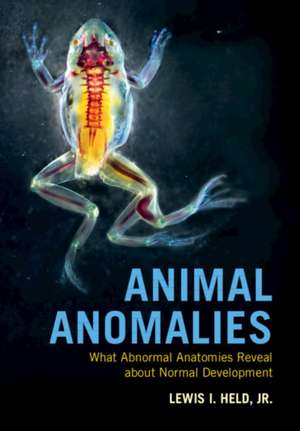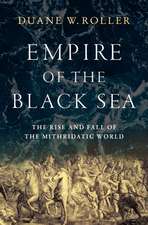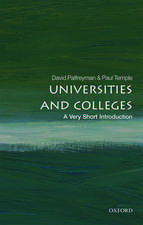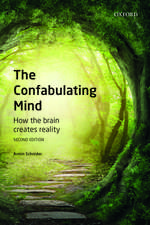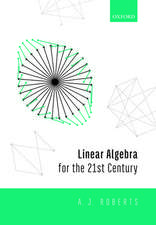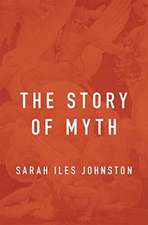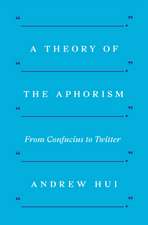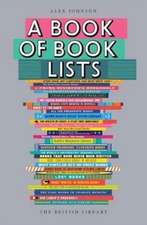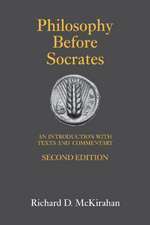Animal Anomalies: What Abnormal Anatomies Reveal about Normal Development
Autor Lewis I. Held, Jren Limba Engleză Paperback – 17 mar 2021
| Toate formatele și edițiile | Preț | Express |
|---|---|---|
| Paperback (1) | 290.24 lei 22-36 zile | +27.93 lei 6-12 zile |
| Cambridge University Press – 17 mar 2021 | 290.24 lei 22-36 zile | +27.93 lei 6-12 zile |
| Hardback (1) | 780.36 lei 22-36 zile | |
| Cambridge University Press – 17 mar 2021 | 780.36 lei 22-36 zile |
Preț: 290.24 lei
Nou
Puncte Express: 435
Preț estimativ în valută:
55.59€ • 57.27$ • 46.56£
55.59€ • 57.27$ • 46.56£
Carte disponibilă
Livrare economică 03-17 februarie
Livrare express 18-24 ianuarie pentru 37.92 lei
Preluare comenzi: 021 569.72.76
Specificații
ISBN-13: 9781108819749
ISBN-10: 1108819745
Pagini: 294
Dimensiuni: 170 x 242 x 15 mm
Greutate: 0.59 kg
Editura: Cambridge University Press
Colecția Cambridge University Press
Locul publicării:Cambridge, United Kingdom
ISBN-10: 1108819745
Pagini: 294
Dimensiuni: 170 x 242 x 15 mm
Greutate: 0.59 kg
Editura: Cambridge University Press
Colecția Cambridge University Press
Locul publicării:Cambridge, United Kingdom
Cuprins
Preface; Part I. Frogs: 1. The introspective frog; 2. Two-headed tadpoles; 3. Extra-legged frogs; Part II. Flies: 4. The double-jointed fly; 5. The four-winged fly; 6. The naked fly; Part III. Dogs: 7. The Shar-Pei; 8. The bully whippet; 9. The Great Pyrenees; Part IV. Cats: 10. The blotched tabby; 11. The Siamese cat; 12. The calico cat.
Recenzii
'With rigorous arguments presented in captivating prose and crystal-clear drawings so rich in information, this new masterpiece by Lewis Held is a unique introduction to the genetics of development. Here, monstrous and normal illuminate each other, as products of the same developmental logic. This book is full of inspiring insights, on a par with the works of the great developmental biologists highlighted in its pages.' Alessandro Minelli, University of Padova, Italy, and author of Understanding Development
'Orthodoxy is so rife in science these days it is strangling originality. The spread of 'best practice' as well as the related belief that there is only one ideal way to understand and explain things has stifled both diversity and imagination. … Lewis Held shows us there is another way - to look at the natural world open-mouthed and open-minded. We are taken on a lively ramble through myriad natural phenomena in countless species and the attempts of scientists to understand them. There is an infectious sense of the wonder and complexity of everything. There are innumerable nuggets to be found and it is fun. … His book sings like the descant in a choral rendition of a familiar hymn. I recommend it, but don't try and read it all in one go!' Peter A. Lawrence, University of Cambridge, UK
'In this wonderful exploration of development, Lewis Held uses both familiar and less-well-known examples of frogs, flies, dogs, and cats to delve deeply into the underlying biological principles their traits can illustrate … Held also describes the genetic basis of traits that pet-owners find endearing … In addition to this fascinating exploration of genetic mechanisms and their outcomes is another idea that I have always valued in Lewis Held's work: the respect for pioneering insights and discoveries by earlier researchers like Curt Stern, Walter Gehring, Ernst Hadorn, and others. I remember hearing a faculty advisor once criticize a new graduate student for planning to cite a research article that was more than a couple years old as being irrelevant to 'modern research'. Thankfully, writers like Held remind us that the story of discovery is a long one, and critical insights can come from anywhere.' Jim Thompson, Drosophila Information Service
'Recommended. Graduate students and faculty.' D. A. Brass, Choice
'Orthodoxy is so rife in science these days it is strangling originality. The spread of 'best practice' as well as the related belief that there is only one ideal way to understand and explain things has stifled both diversity and imagination. … Lewis Held shows us there is another way - to look at the natural world open-mouthed and open-minded. We are taken on a lively ramble through myriad natural phenomena in countless species and the attempts of scientists to understand them. There is an infectious sense of the wonder and complexity of everything. There are innumerable nuggets to be found and it is fun. … His book sings like the descant in a choral rendition of a familiar hymn. I recommend it, but don't try and read it all in one go!' Peter A. Lawrence, University of Cambridge, UK
'In this wonderful exploration of development, Lewis Held uses both familiar and less-well-known examples of frogs, flies, dogs, and cats to delve deeply into the underlying biological principles their traits can illustrate … Held also describes the genetic basis of traits that pet-owners find endearing … In addition to this fascinating exploration of genetic mechanisms and their outcomes is another idea that I have always valued in Lewis Held's work: the respect for pioneering insights and discoveries by earlier researchers like Curt Stern, Walter Gehring, Ernst Hadorn, and others. I remember hearing a faculty advisor once criticize a new graduate student for planning to cite a research article that was more than a couple years old as being irrelevant to 'modern research'. Thankfully, writers like Held remind us that the story of discovery is a long one, and critical insights can come from anywhere.' Jim Thompson, Drosophila Information Service
'Recommended. Graduate students and faculty.' D. A. Brass, Choice
Notă biografică
Descriere
Highlights what we know about the pathways pursued by embryos and evolution, and stresses what we do not yet know.
